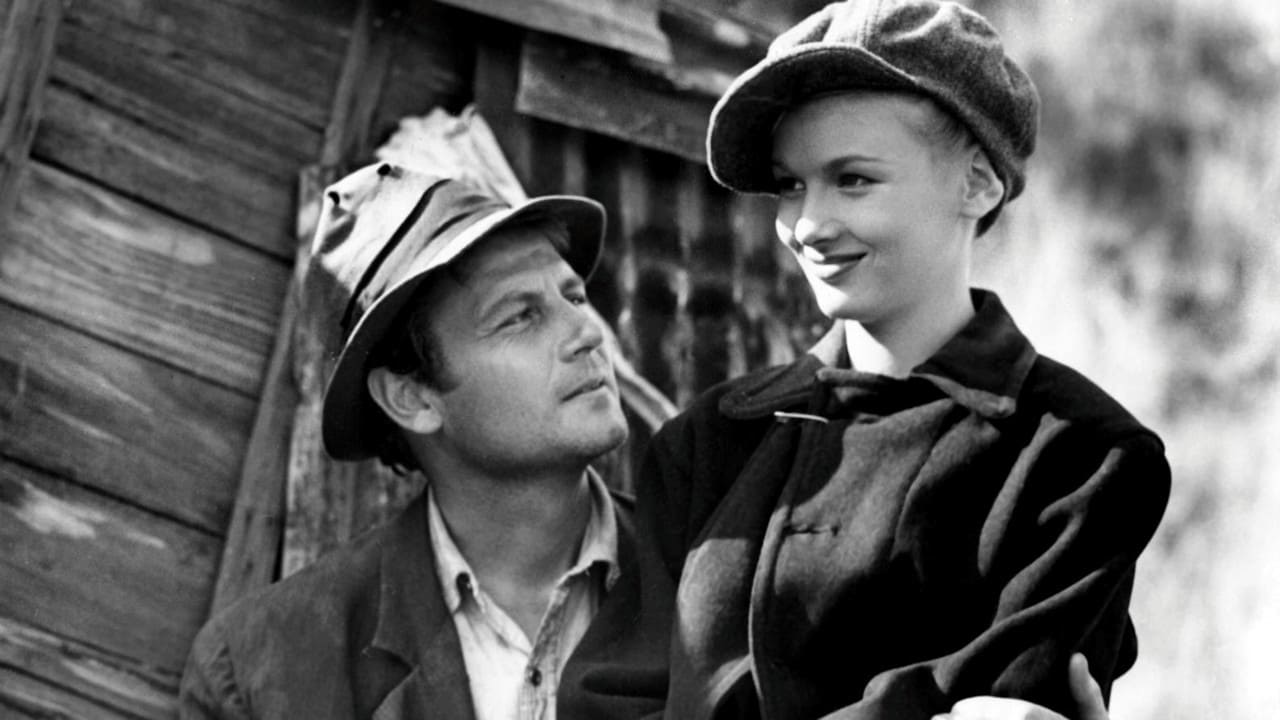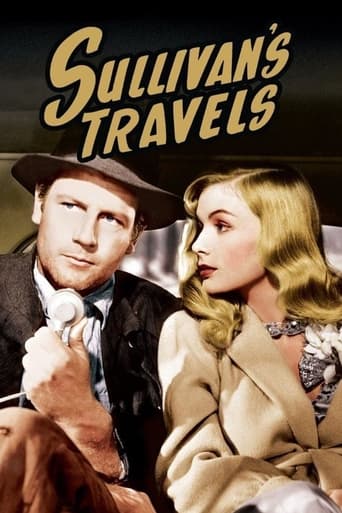

11/15/17. A good look at a time when hobos rode the train across the U.S. because they belonged nowhere, so everywhere can be somewhere they can bum around for a night. McCrea gets his lessons of life from his privileged upbringing by trying to live as someone who knew no one and had no money. And, what he learns about life wasn't too pretty. Worth catching as this is a National Film Registry pick. And, you get a chance to see Veronica Lake who was quite a big star at the time.
... View More"Classic" line of the film: Officer asks Sullivan (Joel McCrea), "What are you (an alleged Hollywood director) doing in those clothes (tattered suit) ?" His answer? "I just paid my income taxes." In fact, income taxes, unemployment, poverty, isolation are some of the things Sullivan desires to "experience" on a hopped up, publicized slumming to the masses of poverty of the Depression Era as background to a proposed movie. Along with a girl (Veronica Lake) the first part of the film focuses on their semi-sheltered stumbling about hobo camps, train box cars, and diners. At the end of each round, however, he has a cushion of his hidden wealth.The latter part of the film shows Sullivan inadvertently thrust into reality as an unknown hobo hoodwinks him into believed death, when in fact he's been imprisoned.... and the rest of the matter, the ending will be for you the viewer to find out. Masterfully written, if not a tad lightly w/a tongue in cheek method of showcasing the plight of Depression Era poverty masses.
... View MoreSULLIVAN'S TRAVELS is an adventure comedy and one of the best representations of satire in the classic Hollywood. The opening scene is very interesting. The director focuses on the contrast of humor as a kind of form of frustration. What is actually good and how "it" is different from what the audience likes. There are many relevant indicators incorporated in a fun story. The transition from comedy to serious drama is well directed.Joel McCrea as John L. Sullivan is an almost perfect choice for leading man. Acts honestly and sincerely with quite irresistible charm. McCrea is an actor who smoothly formed his character in the film. Veronica Lake as The Girl is targeted partner of the main actor. The director thought it would probably remain in the shadow of other parameters. However, one fairly low and incredibly charming girl is perfect bearings. Contrast the main actors in any other option (disguised as a tramp or misunderstood director and failed actress) is very good.This movie should not be seen as a cheap promotion comedy. Laughter is the best medicine. So they say in my country. People's emotions determine the importance and essence. The message is simple. Stay away from own idealism and pay attention to your audience. The message? To whom? The film remains one unconventional comedy, satirical drama and adventure in trails. The atmosphere and scenery are at a high level. The messages are universal.
... View MoreIt starts out great. But then some of the extreme slapstick physical comedy is just not funny today; lot of "falling down or falling in the water" jokes. There is greatness all around this movie, but it never feels focused enough to say what it wants. Still it has to be admired for daring to go someplace no one else could have even imagined back in 1941. And remember, though there were movies about Hollywood afterwards no one went anywhere near this until Fellini. But watching it for the first time today in many years, I was surprised how difficult it was to get involved. It seemed to stop and restart so many times that I got impatient. Still the scene where the prisoners watch the cartoon is undeniably one of the most moving moments in American screen history. And it is also easy to see how many future directors took their lead from what Sturges was trying to do here. Ambition alone can sometimes be quite rewarding.
... View More